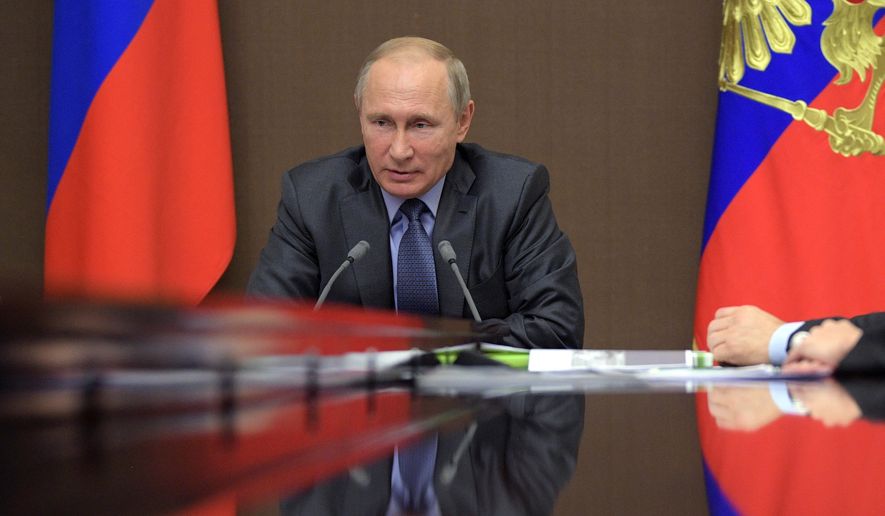Moscow has threatened U.S.-supported news organizations operating in Russia with unspecified “restrictions” in a move widely seen as retaliation for what the Kremlin considers the unfair targeting of Russian media and charges of meddling in the 2016 U.S. election.
On Monday, Russia’s Justice Ministry sent warning letters to Radio Free Europe’s Russian service and a Russian-language cable news network launched by Radio Free Europe and Voice of America. Radio Free Europe said it was warned its operations were now subject to Russian laws governing foreign agents and NGOs — and thus could curbs on its coverage.
“The activity of your organization may be subjected to restrictions envisioned in the legislation of the Russian Federation,” said a statement from ministry official Vladimir Titov.
The feud has escalated in recent weeks. Russia says the government’s primary international TV station, Russia Today or RT, and the news website Sputnik have been singled out for criticism for their coverage of U.S. politics and domestic trends.
A U.S. intelligence community report in January on Russian election meddling highlighted the role of RT America, which Washington officials have characterized as a mouthpiece for Kremlin propaganda. The station has also been accused of attempting to interfere in U.S. politics, a charge it denies.
RT now claims the Justice Department last month sent a letter to a Russian firm affiliated with the TV station requiring it to register as a foreign agent under the Foreign Agents Registration Act. Traditionally FARA, created to reduce undisclosed foreign propaganda in the U.S., is not applied to media companies. Justice Department officials have not commented on RT’s claim.
Radio Free Europe’s Moscow bureau employs a staff of more than 50, including Russian nationals, and already faces significant restrictions distributing its content within Russia.
On Tuesday, officials from the Broadcasting Board of Governors, which oversees Radio Free Europe, Radio Liberty and Voice of America, reaffirmed their mission.
The networks “are free and independent of the U.S. government and deploy honest and independent journalism on behalf of our audiences around the world,” BBG CEO John Lansing said in a statement. “Any attempt to stifle them by authoritarian regimes is a direct assault on the rights of all people around the globe to have access to the free flow of truthful information.”
Last week, Russian Foreign Ministry spokesperson Maria Zakharova, citing a 1991 law, warned that if a Russian media outlet is subject to restrictions in a foreign country, then Moscow then has the right to impose restrictions on media from that country inside Russia.
“Everything that Russian journalists and the RT station are subject to on U.S. soil, … we can apply similar measures to American journalists, American media here, on Russian territory,” Ms. Zakharova said.
• Dan Boylan can be reached at dboylan@washingtontimes.com.




Please read our comment policy before commenting.